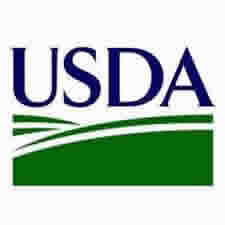 |
Gain report: Nigeria - Food and agricultural import regulations and standards - narrative |
Section I. Food Laws: This report was prepared by the Office of Agricultural Affairs of the USDA/Foreign Agricultural Service in Lagos, Nigeria for U.S. exporters of domestic food and agricultural products. While every possible care was taken in the preparation of this report, information provided may not be completely accurate either because policies have changed since it's preparation, or because clear information about these policies were not available. It is highly recommended that U.S. exporters verify the full set of import requirements with their foreign customers, who are normally best equipped to research such matters with local authorities, before any goods are shipped. FINAL IMPORT APPROVAL OF ANY PRODUCT IS SUBJECT TO THE IMPORTING COUNTRY'S RULES AND REGULATIONS AS INTERPRETED BY BORDER OFFICIALS AT THE TIME OF PRODUCT ENTRY."
The National Agency for Food and Drug Administration and Control (NAFDAC) is the Government of Nigeria's (GON) regulatory body responsible for the regulation and control of food product manufacturing, importation, exportation, advertisement, sale and distribution in Nigeria. Under the provisions of the GON Act No 19 of 1993 (as amended) and the Food and Related Products (Registration) Act No. 20 of 1999 and the accompanying Guidelines, no food item may be imported, manufactured, advertised, sold or distributed in Nigeria unless it has been registered by NAFDAC. NAFDAC was established to protect and promote public health by ensuring the wholesomeness, quality, safety and efficacy (as applicable) of food, packaged water, drugs, cosmetics, medical devises, chemicals and detergents (referred to as regulated products) consumed in Nigeria. NAFDAC defines food as any "article manufactured, processed, packaged, sold or advertised for use as food or drink for human consumption, chewing gum and any other ingredient which may be mixed with food for any purpose whatsoever." Over the past few years, the management of NAFDAC has increased surveillance to curb widespread adulteration of food products. The main strategy employed by the Agency for the enforcement of Nigeria’s food laws is the process of product registration. Contravention of the provisions of existing food laws is subject to prosecution and punishment as specified in the code. In recent years, NAFDAC appears to have become more active and stringent in enforcing existing food laws, which has increased the level of awareness of the consumer to make informed choices and has also encouraged local producers. In theory, any food item not registered with NAFDAC is not legally importable. In practice, many processed foods are routinely illegally smuggled into Nigeria through the land boarders, by sea and by air without having gone through the registration process.
Section II. Labeling Requirements:
A. General Requirements
NAFDAC regulations require food labeling to be informative and accurate and not fraudulent or misleading.
• The following is the outline of NAFDAC’s minimum labeling requirements:
1. A product's brand name or common name must appear in bold letters.
2. Name and full "location" address of the manufacturer showing country of origin must be provided on the product label.
3. The production "batch" or "lot" number, date of manufacture and best before/expiry date.
4. Net content, specifying essential ingredients in metric weight for solids and metric volume for liquids.
5. Ingredients must be listed by their common names in order of their prominence by weight.
6. Food additives and colors must be declared on the label. Spices, flavors and colors may be listed as such, without naming the specific material, but any artificial color or flavor should be identified as such.
7. NAFDAC registration number must be included on the product label.
• Labeling should be in English. If it is in another language, an English translation must be shown on the label or package insert (where applicable).
• If the standard U.S. label addresses the above-mentioned items, no additional labeling is necessary for imports of U.S. food items.
• Stick-on labels meeting NAFDAC requirements are permitted provided they don’t remove easily. Foreign labels must be adhered prior to the product arrival at the Nigerian port of entry.
• Foreign label must be applied prior to export
• For production and expiry dates, Nigerians write the date before the month. U.S. exporters are advised to specify the month in words (July 1, 2005 or indicate mm/dd/yr) to avoid conflicts that may arise in mistaking the day for the month.
• NAFDAC regulation stipulates that all food products should carry best-before dates and/or shelf life on their packaging. The regulation states that the expiry date should be "at least half the shelf life as at time of inspection." The last sentence is interpreted to mean that at the time of inspection (by NAFDAC after clearing Customs), that the period from the inspection date until the expiration date should be equal to or greater than half of the total shelf life of the product (date of production until expiry).
• NAFDAC does not grant exceptions to labeling requirements
B. Requirements Specific to Nutritional Labeling:
• The standard U.S. nutritional fact panel is acceptable by NAFDAC.
• Any nutritional claim on the product's label must be justified. Nutritional labeling is mandatory for any prepackaged food item for which the manufacturer makes a nutrition or dietary claim.
• Foods for special dietary uses with claims of disease prevention, treatment, mitigation, cure or diagnosis must comply with NAFDAC's guidelines for registration of drugs and be registered as medicinal products or nutriceuticals. Labels must contain directions for safe usage, cautions such as interactions when taken with other drugs
• Additional nutritional labeling information is voluntary.
Section III. Packaging and Container Regulations:
• At present, NAFDAC regulations are not specific on packaging, but the agency is in the process of developing regulations on packaging. No specific waste disposal laws or product recycling regulations impact imported food products and NAFDAC does not impose any specific restrictions on packaging materials. However, plastics must be of food grade and should not leach into the product.
• Nigerian importers, however, often express a marked packaging preference for certain high value food products (HVP), namely:
--Relatively small sized products prepared and packaged for one-time use.
--Products that can be shipped in bulk and re-packaged locally.
--Perishable food products that undergo processing/packaging treatment to achieve an extended shelf life without refrigeration….
Prepared By: Michael A. David, Agricultural Specialist
Approved By: Levin Flake, Assistant Agricultural Attaché
Enjoy this article? Feel free to share your comment, idea or opinion in the comment section
| Tags: | Agriculture Products Imports Regulated Laws. |
Related Articles

|
Nigeria's Current Agricultural Economic LandscapeReport Highlights:
The Central Bank of Nigeria continues to restrict access to foreign exchange in an effort to reduce rapid spending of U.S. dollars outside of Nigeria. This restriction is hindering all direct imports, including food and agricultural products. Post estimates that Nig [Read more]
|
Posted: 9 years ago |

|
Be Your Own Hype Man! 5 Daily Self-Motivation Keys to Drive Your Life ForwardIf we are really being honest with ourselves, being motivated can be a lot of work. The ability to create the drive, energy and push needed to perform tasks can be daunting, stressful and even make us feel exhausted.
Today, when everyone seems to have entered unhealthy relationships with the inte [Read more]
|
Posted: 8 years ago |

|
Gain Report: Nigeria - Agricultural finance and developmentReport Highlights: Nigeria's agricultural development is constrained by the lack of access to credit for the predominantly smallholder farmers. Efforts by successive governments to address the problem have been largely unsuccessful. Commercial banks in the country perceive agricultural finance t [Read more]
|
Posted: 15 years ago |


